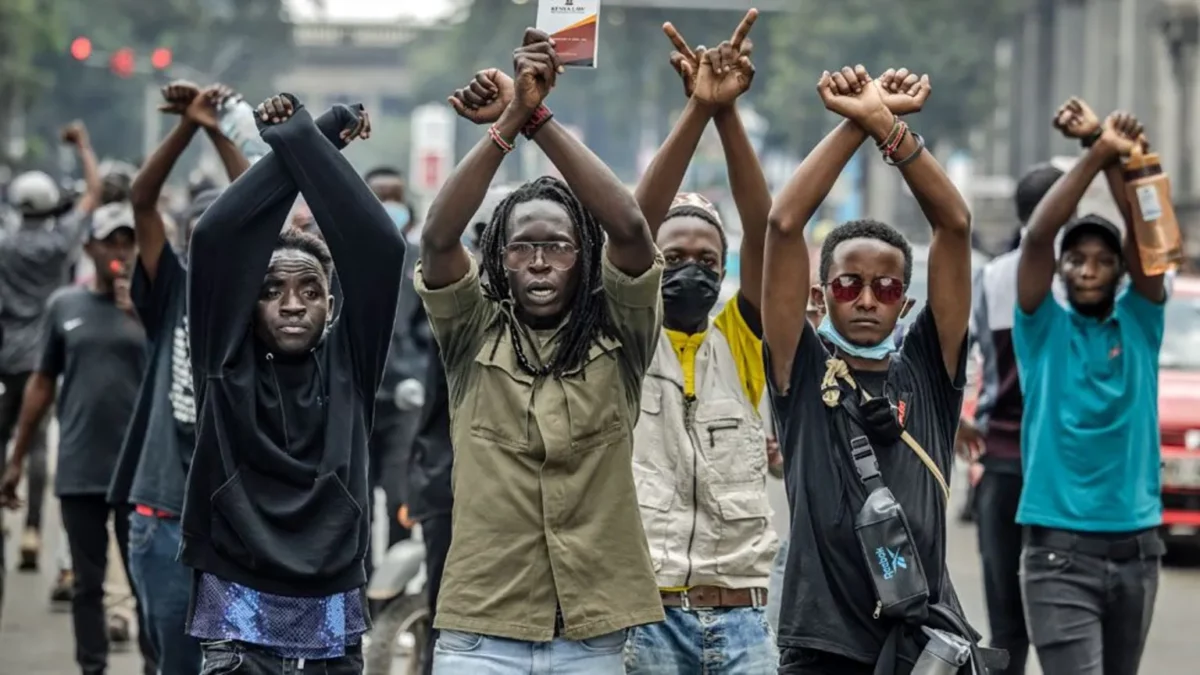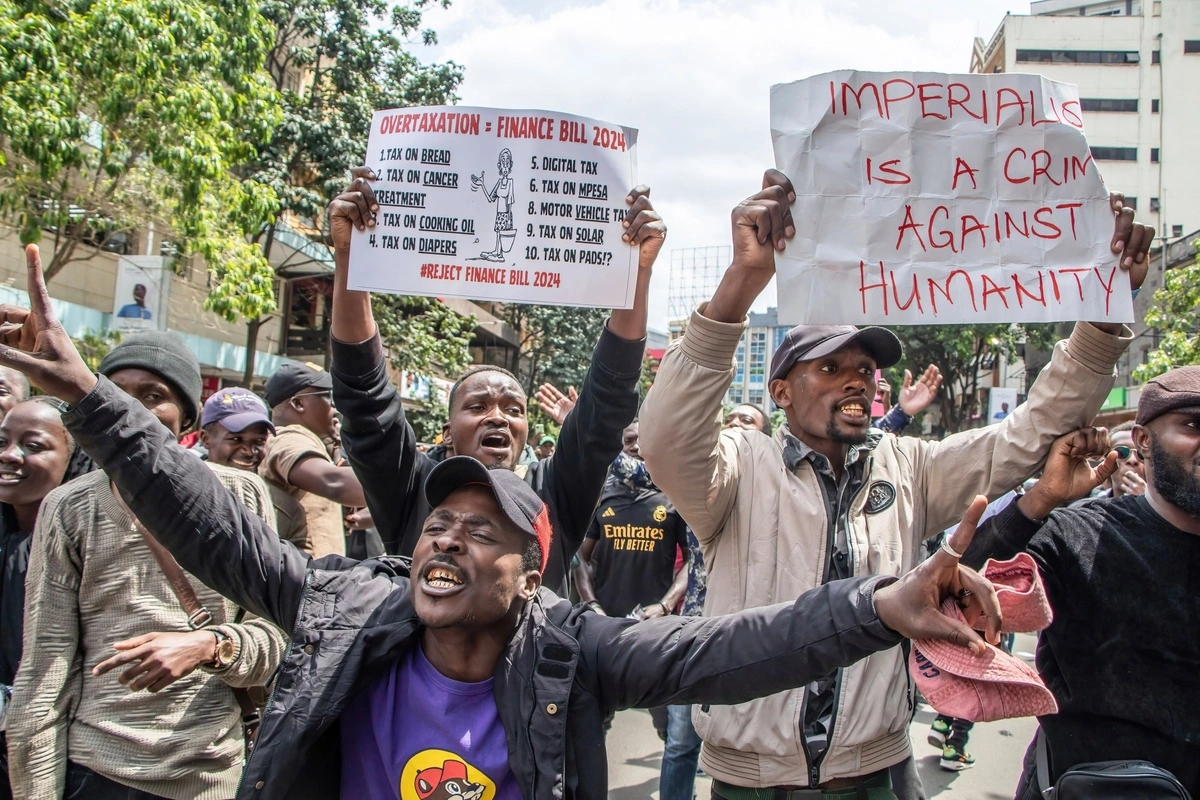After months of escalating discontent on social media, thousands of Kenyans have taken to the streets of Nairobi and other major cities this week to vehemently oppose a proposed finance bill that would significantly increase taxes to fund government loans and development projects. Demonstrations persisted on Thursday, despite government announcements that some of the proposed tax hikes would be scaled back.
Hundreds of protesters in Nairobi called on lawmakers to reject the 2024 Finance Bill, which proposes tax increases across various sectors of the economy. The tax hikes include those meant to service infrastructure debt owed to China. Concurrently, protests also erupted in President William Ruto’s hometown of Eldoret, as well as in Nyeri, Nakuru, Kisii, and Kisumu.
The bill proposes new taxes that would raise the prices of essential goods such as diapers, tires, batteries, smartphones, and cameras. A notable increase is the fuel levy, proposed to rise by 9 shillings, which the bill’s sponsors claim is necessary to repair damaged roads. Additionally, the government has introduced an ecology levy aimed at combating plastic pollution and protecting the environment.
Effie Muendo, one of the protesters, articulated the widespread opposition to the bill, particularly its impact on women. “The finance bill is unconstitutional, and it’s very punitive to the people of Kenya,” Muendo stated.
“Sixty-five percent of women cannot afford sanitary towels, and yet they want to tax them. They are telling us they want us to buy local brands, and yet local brands are not available. Many women cannot afford them already. When they tax them, how much will it be? So, they are really trying to mess with our dignity as women and that one we cannot allow.”

The protests in Nairobi turned tense as police deployed water cannons and tear gas to disperse demonstrators who had occupied central streets. Protesters expressed frustration with the heavy police presence, which prevented them from accessing parliament buildings.
Diana, another protester, questioned the police’s actions. “They are throwing tear gas at us, they are fighting us, they are beating us up. We are not at peace, we are peacefully demonstrating for our country because we love our country, Kenya,” she said.

Kimani Mbugua, another demonstrator, echoed the resolve to oppose the bill. “We are supposed to demonstrate, it’s a provision in our constitution. I don’t understand why the government is giving us tear gas, and we are here exercising our democratic rights. We are here to fight the finance bill because the finance bill is punitive, and it must be fought. We are fighting it to the core, and it must be rejected,” Mbugua declared.
In response to the protests, the parliamentary committee overseeing finance and planning announced on Tuesday the removal of proposed taxes on bread and cooking oil, as well as the annual 2.5 percent levy on motor vehicles and the tax on financial transactions. However, these concessions did little to quell the public outcry, with protesters demanding the complete withdrawal of the bill.
The ruling party argues that increased taxes are necessary to fund government development programs and repay loans, a stance that remains contentious among the populace. The National Assembly is slated to vote on the bill next week, with ongoing protests anticipated as the debate intensifies.

As the nation waits for the parliamentary decision, Kenyans have vowed to continue their demonstrations, underscoring a growing movement against what many perceive as unfair economic burdens.
















